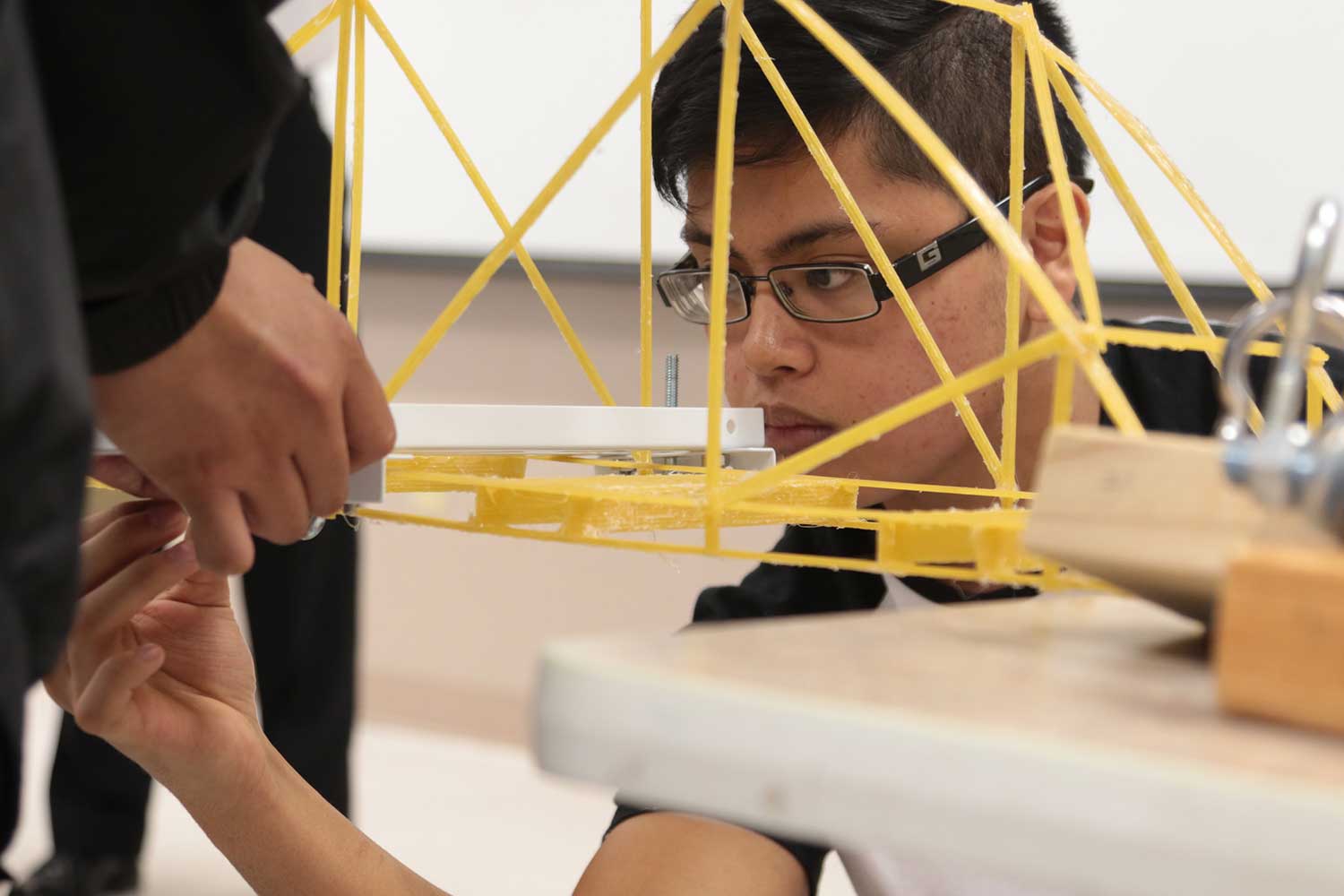School of Engineering | Degree Programs
Degree Programs
School of Engineering | Degree Programs
Civil Engineering Program

The Field: Civil engineering is the oldest branch of engineering and plays a major role in developing a society and civilization.
Relevance and Demand: Employment of civil engineers is projected to grow 20% from 2012 to 2022, which is much faster than the average for all occupations. As infrastructure ages, civil engineers will be needed to manage projects to rebuild bridges, repair roads, and upgrade levees and dams.
UOG’s School of Engineering offers a Bachelor of Science in Civil Engineering to meet the needs of local students and the workforce requirements of Guam and all of Micronesia and the neighboring regions of the Pacific and Asia.
Why UOG?: Students from the Pacific region enrolled in UOG’s Civil Engineering Program will benefit from being able to study close to home and at a substantial savings compared to schools in other states or countries.
The School of Engineering is preparing to seek accreditation for its Civil Engineering degree program through the Engineering Accreditation Commission of ABET.
Career Possibilities: UOG Civil Engineering graduates will be valuable for Guam construction companies, consulting companies, municipalities, Guam Department of Public Works, Guam Environmental Protection Agency, and more. Graduates will be primarily involved with the analysis, design, and development of structural systems, construction projects, transportation projects, environmental treatment facilities, and project management.
Following are the program educational objectives (PEOs).
The graduates of the Civil Engineering Program of the University of Guam will:
- Successfully enter the civil engineering profession as practicing engineers and consultants seeking to resolve current and emerging issues or pursue advanced study and research in engineering.
- Advance their profession and community by understanding the challenges of professional practice, working collaboratively, committing to licensing, engaging in continuing education and serving the community as ethical and responsible professionals.
- Be able to make informed judgments, which must consider the impact of engineering solutions to the sustainable development of the Pacific Islands and their global interdependency, in economics, environmental, and societal contexts.
Students completing the Civil Engineering Program will have:
- an ability to identify, formulate, and solve complex engineering problems by applying principles of engineering, science, and mathematics
- an ability to apply engineering design to produce solutions that meet specified needs with consideration of public health, safety, and welfare as well as global, cultural, social, environmental, and economic factors
- an ability to communicate effectively with a range of audiences
- an ability to recognize ethical and professional responsibilities in engineering situations and make informed judgments, which must consider the impact of engineering solutions in global, economic, environmental, and societal contexts
- an ability to function effectively on a team whose members together provide leadership, create a collaborative and inclusive environment, establish goals, plan tasks, and meet objectives
- an ability to develop and conduct appropriate experimentation, analyze and interpret data, and use engineering judgment to draw conclusions
- an ability to acquire and apply new knowledge as needed, using appropriate learning strategies;
| Academic Year | Degrees Awarded |
|---|---|
| 2022/2023 | 9 |
| 2021/2022 | 19 |
Demographic Breakdown
| Academic Year | Degrees Awarded |
|---|---|
| 2022/2023 | Male: 89% Female: 11% |
| 2021/2022 | Male: 68% Female: 32% |
| Academic Year | Enrollment Year | Total | |||
|---|---|---|---|---|---|
| 1st | 2nd | 3rd | 4th | ||
| 2022/2023 | 109 | 77 | 61 | 65 | 312 |
| 2021/2022 | 90 | 79 | 53 | 80 | 302 |
| 2020/2021 | 124 | 65 | 48 | 77 | 314 |
| 2019/2020 | 123 | 42 | 48 | 35 | 248 |

